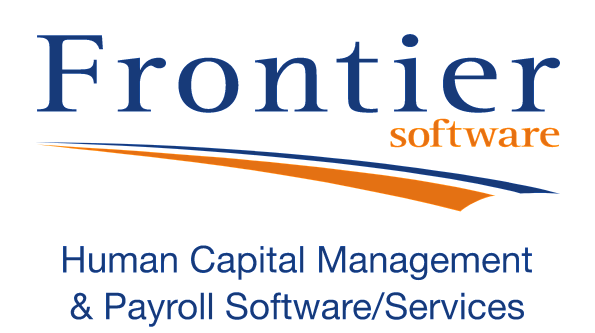
With pay secrecy clauses now abolished, now is the perfect time to increase your business’ transparency efforts.
Late last year, the Australian government passed the Fair Work Legislation Amendment (Secure Jobs, Better Pay) Act 2022, enacting changes to a number of existing rules and introducing a range of new workplace laws.
Key to the changes was an end to pay secrecy, meaning employees are no longer legally prohibited from disclosing or talking about their pay to each other.
The amendments also invalidate any contractual clause in an existing contract that prevents employees from discussing pay and prohibit employers from including such clauses in new employment contracts.
Kim Boyd, National Sales and Marketing Manager at Frontier Software, says the abolition of pay secrecy clauses has presented several challenges for businesses and employers.
“Key among them, is the management of potential fallout from revealed pay disparities. If this occurs, there will be negative impacts on morale and the genuine possibility of disputes,” Ms Boyd said.
“Employers must be prepared to address these concerns and justify any discrepancies with a demonstrable commitment to fairness and transparency. Failure to do so will damage employee trust and engagement, affecting overall productivity and retention rates.”
Without the protection of pay secrecy clauses, businesses may face legal consequences if they are found to have undertaken discriminatory pay practices, Ms Boyd added.
“With increased visibility around remuneration, employers must ensure that their compensation structures are fair. This may require conducting thorough pay audits to identify any disparities based on factors such as gender, race, or other protected characteristics.
“Rectifying these discrepancies can be a complex and sensitive process, requiring careful consideration of both legal requirements and organisational dynamics,” she explained.
The opportunity
Despite the challenges that have arisen from the abolishment of pay secrecy laws, there is an opportunity for businesses to put their best foot forward and become more transparent about remuneration than they’ve been in years’ past.
For employers, pay transparency is another means of building a positive work culture. From an employee standpoint, pay transparency promotes a sense of fairness and equity.
“Pay transparency allows individuals to have a better understanding of where their remuneration package sits within their organisation and the broader market, which provides them with the information necessary to better negotiate salaries,” Ms Boyd said.
“Pay transparency will also help address longstanding issues, like gender pay gaps, by exposing disparities and triggering discussions about corrective actions. Consequently, employee confidence in the fairness of pay structures will positively affect job satisfaction, motivation, and overall engagement.”
Clarity about compensation can also contribute to higher employee morale and retention.
Additionally, it helps attract talent, as potential candidates are more likely to be drawn to organisations that are demonstrably transparent about their compensation practices.
“Pay transparency will also force organisations to improve practices around remuneration. Businesses are now required to review their pay structures to ensure they align with industry standards and legal requirements. This will inevitably lead to a more competitive and equitable compensation framework internally and market-wide,” Ms Boyd flagged.
Making strides
The abolishment of pay secrecy laws means transparency surrounding salaries is no longer an option for employers, despite some remaining hesitant to disclose details surrounding remuneration.
If your business is yet to make strides towards pay transparency, it’s essential to start by conducting a thorough review and audit of current pay practices.
“Identify any inconsistencies or potential issues that pay transparency could unearth. This process will help you understand the gaps in your current practices and identify what needs to change,” Ms Boyd advised.
“Next, engage in open and honest conversations with employees about the rationale behind pay decisions. Pushback should be expected, so be prepared to address their concerns and provide clear explanations for any pay disparities that may exist. Transparency and clear communication are key to maintaining trust and ensuring that employees feel valued and treated fairly.”
Similarly, it’s important clear guidelines and polices regarding pay transparency are established.
Communicate your organisation’s commitment to fairness and equity in compensation, and develop a framework that outlines the criteria and factors influencing pay decisions, ensuring that they are applied consistently across the organisation.
By establishing transparent guidelines, Ms Boyd said, you provide employees with a clear understanding of how pay is determined, reducing confusion and potential conflicts.
“Do not overlook your leadership teams. It is crucial to train managers and HR personnel on the principles of pay transparency and how to navigate conversations about compensation effectively. Equip them with the knowledge and skills to address employee concerns, provide accurate information, and handle discussions about pay disparities sensitively and professionally,” she flagged.
“Finally, regularly review and update your pay practices to align with industry standards and legal requirements. Conduct periodic pay audits to identify and rectify any disparities or biases. Stay informed about changes in legislation or best practices regarding pay transparency to ensure ongoing compliance.”
How Frontier Software can help
For those still unsure about the best way to approach pay transparency, Frontier Software is here to support you and your business.
As the leading provider of HR and payroll software solutions, Frontier Software offers robust systems that streamline and automate pay processes while ensuring accuracy and compliance.
“Our solution, ichris, supports payroll transparency via in-depth reporting that enables businesses to generate comprehensive and easy-to-understand pay data for employees. The software can generate detailed statements that break down compensation components, such as base salary, bonuses, and allowances,” Ms Boyd said.
“This enables the business to provide the requisite information to employees about how their pay is calculated, which fosters trust and satisfaction.
“Besides software solutions, Frontier Software consultants offer clients support and guidance in establishing transparent pay structures. Our team of experts can provide consultancy services to review existing pay practices, conduct pay audits, and develop strategies to ensure fairness and compliance.
“Frontier Software's partnership approach means we work closely with businesses to understand their unique needs and challenges. We provide training and support to HR teams and managers, equipping them with the knowledge and skills required to effectively navigate the complexities of pay transparency,” Ms Boyd concluded.
To learn more about ways you can become pay transparent, get in touch with the team at Frontier Software by clicking on this link.










